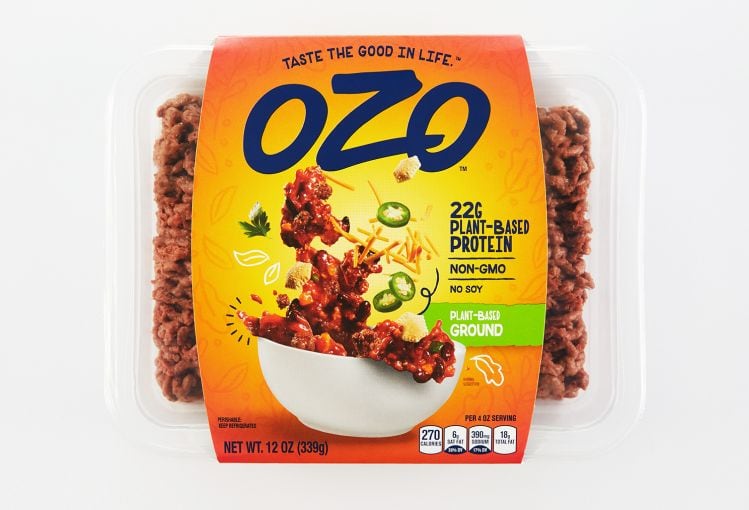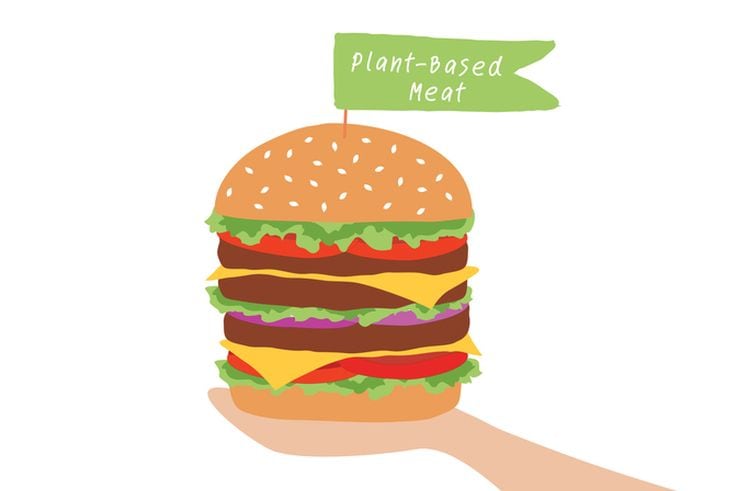The move was first reported by the Denver Business Journal on Saturday, two days after the company filed a notice of its plans with the Colorado Department of Labor and Employment explaining that the decision would impact approximately 121 employees, with the site to close "within the next 60 to 75 days."
‘We continue to believe in the potential of plant-based options for consumers’
JBS – which has a plant-based business in Brazil and acquired plant-based meat company Vivera (with a presence in the Netherlands, Germany and the UK) last year - did not provide further details but said in a statement to FoodNavigator-USA that it had “made the decision to discontinue operations in its US-based Planterra business unit.”
Head of communications Nikki Richardson told us: “We continue to believe in the potential of plant-based options for consumers and remain committed to the alternative protein market. JBS will focus its efforts on its plant-based operations in Brazil and Europe, which continue to gain market share and expand their respective customer bases.
“We are actively working with the Planterra workforce to provide employment opportunities at other JBS locations.”
‘It had to be independent’
While all of the major meat players from Cargill, Tyson, Smithfield and Maple Leaf Foods, have made moves into the plant-based meat category in recent years, JBS went all-in with Planterra Foods, a standalone operation run at arm’s length from JBS by Darcey Macken, who had previously worked in senior management roles at Kellogg and Noosa Yoghurt, in October 2019.
Speaking to FoodNavigator-USA in early 2020, she said: “You see time and time again that companies try to establish new brands and they get compared to different P&Ls and not run properly, so it had to be independent, but rely on JBS from a support standpoint, so shared services on the back end, SAP, and utilizing procurement from a supplier relationship standpoint.”

US retail sales, meat alternatives: August 2022 vs August 2021
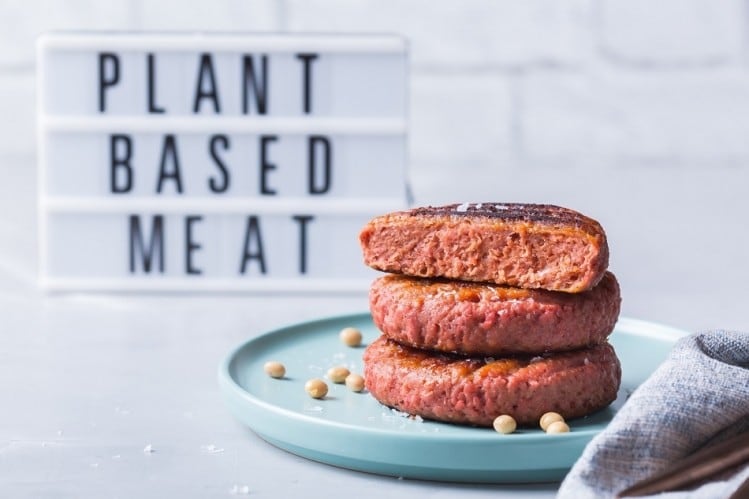
US retail sales of meat alternatives (frozen and refrigerated combined) were flat (-0.9%) in August 2022, with unit sales down -7.2% year on year.
To place this in context, total food & beverage sales were up +8.7% with unit sales down -5%, according to IRI data crunched by 210 Analytics.
Within that, frozen meat alternatives, which account for two-thirds of category sales, are faring significantly better (dollars +6.9%, volumes +1.3% in Aug '22 vs Aug '21) than refrigerated meat alternatives (dollars -16.2%, volumes -16.7%).
‘The competition is incredible…’ Standing out in a sea of plant-based options
Attempting to stand out a category that was already getting crowded, OZO's first products were soy-free, and made with textured pea protein and MycoTechnology’s pea and rice protein fermented by Shiitake mycelia (the roots of Shiitake mushrooms), with less saturated fat and fewer calories than rival offerings.
While the planned April 2020 launch was slightly delayed owing to the pandemic, the brand moved into key accounts including Kroger and Safeway in late summer 2020 and formed partnerships with several foodservice accounts as its expanded its range, entering the Canadian market and opening a new HQ and innovation center in Lafayette, CO, in summer 2021, and switching production from co-packers and a JBS plant in Riverside, CA, to a newly renovated plant in Denver that opened in December 2021.
Slowing category sales
It is not clear when the decision was made internally at JBS to pull the plug on Planterra, which has been attending trade shows and announcing new products and commercial partnerships throughout 2022, most recently issuing a press release on September 22 about collaborations with Gregory's Coffee and Veggie Grill locations across the US.
However, sales of plant-based meat alternatives have been slowing over the past year, with double digit declines in dollars and volumes in the refrigerated segment, where the OZO brand made its debut (although it has since launched frozen products) with Macken telling us last summer that fresh plant-based meat was not delivering the same kinds of turns or profitability for retailers as conventional meat, although they recognized the need to create plant-based sets in the meat case from a strategic perspective.
“So when it comes to consumer interest, it’s there, I just don’t think we’re yet offering the right products and really closing the gap and finding the right solutions for shoppers, because awareness and interest is high but household penetration is in the low single digits.”
Asked whether the lower saturated fat and reduced calorie counts were resonating with shoppers, she said: “At the beginning we believed that going in with a true healthier option would set us apart, and we tried talking about this in a lot of different ways.
“But what we've learned really in the past year and a half is that when people enter the plant-based category they already believe they're doing something healthier. Then they need to make a choice [within the category], so we really have to dive in to what makes us unique on taste and convenience as well as health.”
MycoTechnology: 'Transformations take time'
Jonas Feliciano, director of marketing at MycoTechnology, which has been working with Planterra Foods from the outset, told us that changing the way people eat will not happen overnight: "Some people will read this news and believe the narrative that meat alternatives are a fading fad - we challenge that thinking."
He added: "Transformations take time, and, at MycoTechnology, we will continue our mission to solve for today while innovating for tomorrow. Driven by our patented mushroom mycelial fermentation process, as well as our intrepid partners, we continue to co-create great tasting products that are better for people and the planet. We appreciated our partnership with Planterra and wish all their employees the best at continuing to impact our industry. Anyone will be fortunate to find this passionate, available talent."
Lightlife Foods, Morningstar Farms, Gardein, Impossible Foods, Beyond Meat, Quorn…
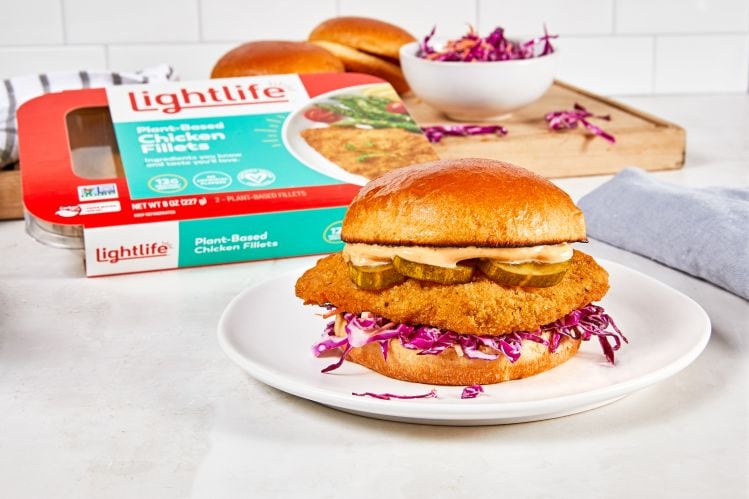
The move by JBS USA follows a decision by fellow meat processor Maple Leaf Foods (which owns the Lightlife and Field Roast plant-based brands) to reallocate some resources from its plant-based meat business back to conventional meat amid slowing sales.
“We used to believe in a transformational category outcome” for meat alternatives, said Maple Leaf Foods’ CEO Michael McCain on the firm’s Q2 earnings call in August after the plant protein business posted an -18.4% decline in sales to $40.8m.
“This did not materialize… and we no longer believe that it will materialize.”
This doesn’t mean the alt meat category is a dud, just that all those hockey-stick growth charts were way too ambitious, he said: “We feel along with others… that it will settle into a long-term growth rate of 10-15% particularly if supported by a robust innovation agenda.”
Morningstar Farms – the market leader in plant-based meat - was “uncharacteristically down in net sales and consumption through the first half” reflecting short-term “supply chain challenges, principally with a co-manufacturer, which led us to reducing our commercial activities," according to CEO Steve Cahillane (speaking on Kellogg’s Q2 earnings call in August).
But he added: “Nevertheless…. this is a business that remains in good condition from the standpoint of brand equity, marketing and innovation pipeline as well as profitability.”
Unit sales of Gardein (owned by Conagra Brands) are flat, meanwhile, although retail sales were up 13.3% to $154m versus a year ago in the 52 weeks to August 7 and the brand has gained market share through the acquisition of new buyers and increased repeat rates among existing consumers, claimed the company in a recent interview.
Beyond Meat has had a grim few quarters, while Impossible Foods claims its retail sales are up in the double digits, and Quorn says it is seeing an increased rate of sale on some core SKUs although US president Judd Zusel acknowledged that it is an extremely challenging time for the whole category.
Where next for meat alternatives?
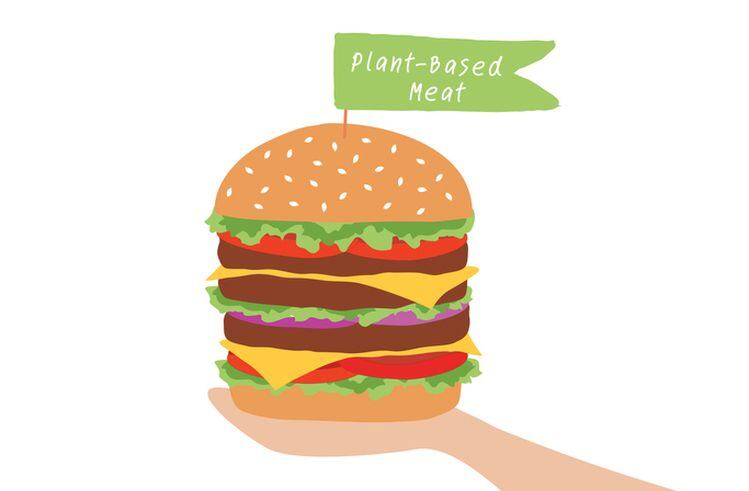
So have we reached peak alt-meat, or is the weakening performance in US retail merely reflective of inflationary pressures (plant-based meat is more expensive than conventional, although the gap is narrowing) and well-publicized issues at some of the publicly-listed players in the space, rather than a sign that the category is approaching some kind of natural ceiling?
The recent figures have caused “concern, although not panic” in some quarters of the trade, according to one source, while others are predicting a shakeout as retailers weed out poor performers, and report a “market correction” as valuations come down to a more realistic place.
Recent survey data from The Brightfield Group also suggests that 'plant forward' or flexitarian consumers, who eat meat, but are open to plant-based options, and represent a significantly larger addressable market than vegans and vegetarians, have been pulling back from the category as inflation has started to bite, and report eating more (conventional) meat over the past three months.
Further reading:
- NotCo to launch NotChicken at Sprouts nationwide, unveil first fruits of Kraft Heinz JV, by year end
- Beyond Meat chief supply chain officer Bernie Adcock gives notice, days after suspension of COO Doug Ramsey
- Quorn Foods USA president talks meat alternatives: ‘We all need to take a deep breath’
- ‘There’s going to be a lot of burnt capital…’ Navigating the ‘hand-wringing phase’ of alt meat investment
- Conagra Brands (Gardein) talks alt meat: ‘There's no way the space supports 20 manufacturers making plant-based burger patties’
- Where next for meat alternatives? Stakeholders weigh in: ‘Building a food company is not like going live on an app… it takes patient capital
- Brightfield Group: 'Plant-forward consumers are going to be the ones to make or break the category. And right now their loyalty is wavering'
- Impossible Foods tweaks formulation, slashes saturated fat: ‘The category has done a lousy job of explaining itself,' says CEO
- Plant-based meat by numbers in US retail: A tale of two temperature states
- Burger King tests plant-based chicken sandwich from Impossible Foods as frozen patties hit stores nationwide
- Stray Dog Capital: ‘Truly astonishing’ innovations afoot in alternative proteins, after you sort through me too products
- Beyond Meat Q2: CEO under pressure as firm posts $97.1m loss on sales -1.6% to $147m, lowers guidance
Interested in meat alternatives?

Register for our upcoming FREE-to-attend virtual summit: Futureproofing the Food System, November 15-17, which features a session on 'The Future of Meat' featuring:
- Dr Elliot Swartz, lead scientist, cultivated meat, The Good Food Institute
- Ethan Brown, co-founder and CEO, Beyond Meat
- Dr Lisa Dyson, founder and CEO, Air Protein
- Dr Tyler Huggins, co-founder, Meati Foods
- Abena Foli, head of regulatory affairs, Orbillion Bio

